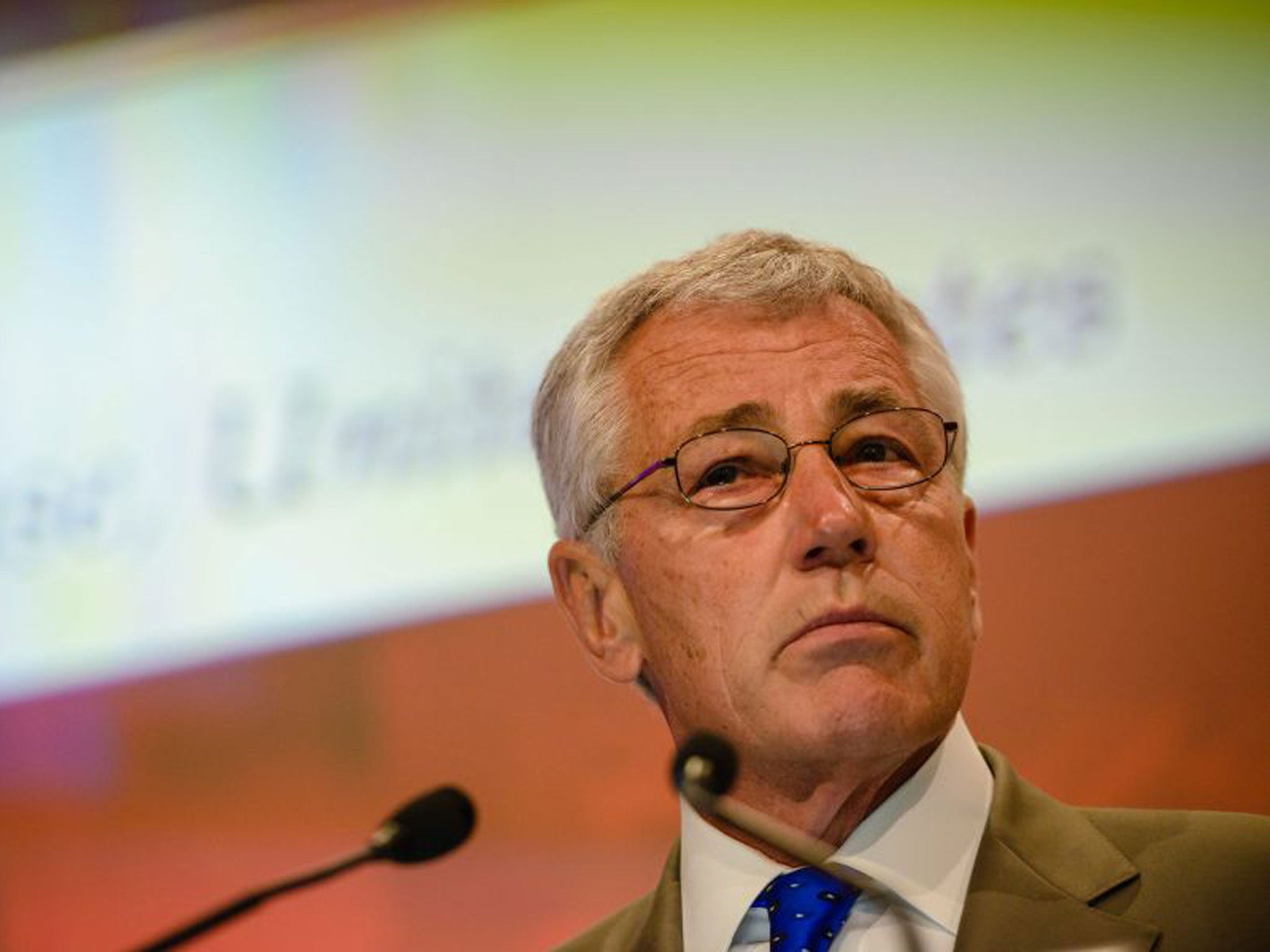US Defence Secretary Chuck Hagel uses security conference to warn China on cyber attacks

Your support helps us to tell the story
From reproductive rights to climate change to Big Tech, The Independent is on the ground when the story is developing. Whether it's investigating the financials of Elon Musk's pro-Trump PAC or producing our latest documentary, 'The A Word', which shines a light on the American women fighting for reproductive rights, we know how important it is to parse out the facts from the messaging.
At such a critical moment in US history, we need reporters on the ground. Your donation allows us to keep sending journalists to speak to both sides of the story.
The Independent is trusted by Americans across the entire political spectrum. And unlike many other quality news outlets, we choose not to lock Americans out of our reporting and analysis with paywalls. We believe quality journalism should be available to everyone, paid for by those who can afford it.
Your support makes all the difference.Defence Secretary Chuck Hagel delivered a two-pronged message to Beijing — holding out hope for a slowly improving military relationship with the Asian giant while issuing a stern warning on cyber attacks coming from that country. But he was met with immediate scepticism from the Chinese delegation in the audience, who questioned America's role in the Pacific.
Speaking on Saturday at a security conference in Singapore that he helped to form more than a decade ago, Hagel said: "The United States has expressed our concerns about the growing threat of cyber intrusions, some of which appear to be tied to the Chinese government and military." While he is not the first US official to publicly blame China for computer-based attacks that steal data from US government and corporate networks, he delivered the rebuke in China's backyard, with members of Beijing's government in the audience.
His comments triggered a wry response from Maj. Gen. Yao Yunzhu, director of the Center for China-America Defense Relations, at the People's Liberation Army's Academy of Military Science, who challenged him to better explain America's intentions in its building up of the military across the region.
"Thank you for mentioning China several times," she told Hagel, minutes after he concluded his remarks, and began taking questions from the audience. As an audible murmur and some quiet chuckles rose from the audience, she added that America's new shift to the Pacific has been widely interpreted as an "attempt to counter China's rising influence, and to offset the increasing military capabilities of the Chinese PLA. However, China is not convinced."
She asked Hagel how he can assure China that the increased military deployments to the region are part of an effort to build a more positive relationship with Beijing.
"That's really the whole point behind closer military-to-military relationships," Hagel responded. "We don't want miscalculations and misunderstandings and misinterpretations. And the only way you do that is you talk to each other."
He said the US welcomes a strong and emerging China that takes on responsibilities for security in the region, and that Beijing and Washington have to be inclusive and direct with each other. "I think we've made continued progress," he said. "And we'll make more progress."
In his speech, Hagel said the US is determined to work closely with China and other nations to establish appropriate standards for behaviour in cyberspace. And the US will also be looking to China for help in resolving ongoing problems with North Korea, which in recent months has ratcheted up tensions in the region with a series of rocket launches, an underground nuclear test and threats of nuclear strikes against the US and its allies.
Noting America's longstanding tensions with China, Hagel said: "The key is for these differences to be addressed on the basis of a continuous and respectful dialogue." The two nations, he said, must build trust in order to avoid military miscalculations.
Just finishing his third month as Pentagon Chief, Hagel used the speech to introduce himself on a more personal level to the audience. For many he is a familiar face, since he was one of the founders of the conference in 2002, and as a US senator, was a speaker at the first three gatherings.
He talked about his long ties to the region, including his father's service in World War II flying B-25 bombers in the South Pacific, and his own service in Vietnam with his brother. Hagel was wounded and twice received the Purple Heart.
Later, he traveled to Asia as the co-founder of a cellular telephone company and then, as a GOP senator from Nebraska, he served on the Foreign Relations Committee.
"What I took away from all these experiences," Hagel said, "was a firm belief that the arc of the 21st century would be shaped by events here in Asia."
AP
Join our commenting forum
Join thought-provoking conversations, follow other Independent readers and see their replies
Comments